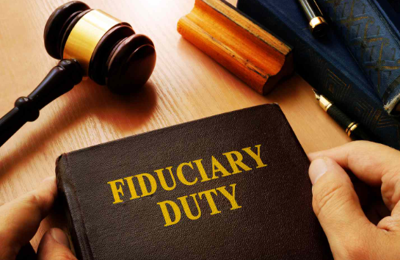
Picture this: You're in charge of your community group's cash. The group collects funds for the welfare of its members in case of an emergency. As treasurer, you’re also a signatory of the account because you work in the local bank.
However, you’ve encountered some economic challenges, which prompt you to direct some of these funds to your account. This is based on you paying it back later. Although embezzlement takes many forms, such instances of a banker misdirecting funds from a client’s accounts are the most common form of embezzlement. Speaking to criminal defense attorney Mark Sherman can help shed more light on such matters.
Today’s blog will discuss elements of embezzlement as a crime and highlight what you should expect when faced with this charge. But first, let’s begin by looking at what embezzlement entails.
Understanding Fiduciary Duty in Embezzlement Cases
To be charged with embezzlement, there must be a fiduciary relationship—meaning one person has a duty to manage another’s money or property. Breaching this trust by misusing those assets turns a simple mistake into a criminal offense. Proving that relationship is key to building or defending a case
What is Embezzlement?
Embezzlement is a type of white-collar property crime. It is mainly the theft of money or property entrusted to oneself by another person. Common in professional and financial relationships, embezzlement often occurs when you’re in charge of large sums of money or valuable property.
Fiduciary Relationship
Embezzlement differs from larceny or common theft. To differentiate these crimes, Connecticut requires a fiduciary relationship between the defendant and the victim for the charge to qualify as embezzlement.
Within a fiduciary relationship, one party entrusts another to perform specific functions with either money or property. To embezzle, therefore, is to breach this duty. In either theft or robbery, no such relationship is present.
What Is the Expected Punishment
Embezzlement varies from a misdemeanor to a felony, depending on the specific charges. Additionally, you may be charged under federal law, state law, or both. The determinant is mostly the property value and the type of property involved.
Akin to the above variation, the punishment is also expected to differ depending on the class of offense you’ve been charged with. You may be fined between $500 and $20,000 or sentenced to 3 months to 20 years. This jail term could increase to more than 20 years, depending on the severity of your crime.
Remember that you may get a combination of the above punishments depending on the specific elements of your case.
There are different classes of embezzlement, and they differ depending on several factors. For example, if the amount stolen is below $500, you may be subject to just a fine and no jail time.
How Penalties Are Determined in Embezzlement Charges
The consequences of embezzlement vary widely. Penalties depend on the value and type of property involved, ranging from fines to decades in prison. Charges may fall under state or federal law—or both. Even minor offenses can carry serious consequences, making it critical to seek legal advice early.
Why Do You Need a Criminal Defense Attorney?
An attorney familiar with criminal law is an essential companion when charged with embezzlement. These professionals have gained the experience needed to prepare your defense. Furthermore, they are bound by a duty of confidentiality, barring them from sharing anything you divulge to them. Noting how serious a charge of embezzlement is and the associated penalties, raising a strong defense may be the only way to avoid or minimize your jail term.
When entrusted with the money or property of another for safekeeping or storage, one must take the necessary steps to ensure that they do not breach this trust. Breaking the trust would suffice for one to be charged with embezzlement. Note that the amount involved and your intention to return the money are neither essential nor can they be used as a defense. Getting a lawyer will make sure you have a solid defense that might lessen your sentence.


(0) comments
We welcome your comments
Log In
Post a comment as Guest
Keep it Clean. Please avoid obscene, vulgar, lewd, racist or sexually-oriented language.
PLEASE TURN OFF YOUR CAPS LOCK.
Don't Threaten. Threats of harming another person will not be tolerated.
Be Truthful. Don't knowingly lie about anyone or anything.
Be Nice. No racism, sexism or any sort of -ism that is degrading to another person.
Be Proactive. Use the 'Report' link on each comment to let us know of abusive posts.
Share with Us. We'd love to hear eyewitness accounts, the history behind an article.